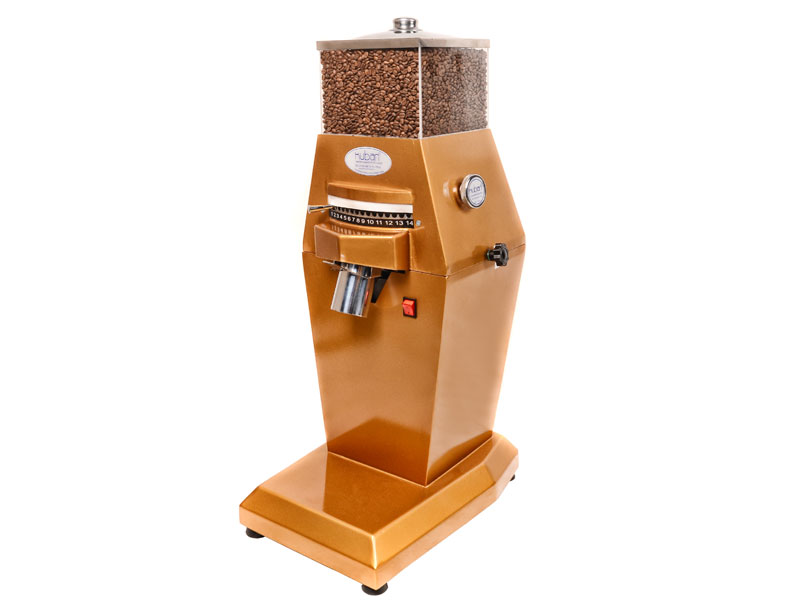How an Industrial Coffee Grinder Improves Flavor Consistency
How an Industrial Coffee Grinder Improves Flavor Consistency
Blog Article
Industrial Coffee Grinder Overview: Boost Efficiency and Top Quality
In the competitive landscape of coffee manufacturing, selecting the appropriate industrial coffee grinder plays a pivotal function in boosting both effectiveness and item quality. Comprehending the nuances of numerous grinder types and key attributes-- such as adjustable work setups and durable construction-- can substantially influence the final flavor profile of the coffee.
Recognizing Mill Kinds
When picking an industrial coffee grinder, comprehending the numerous types readily available is crucial for maximizing both flavor removal and operational efficiency. Both key types of grinders are blade mills and burr mills. Blade mills use sharp blades that chop coffee beans into inconsistent sizes, causing irregular removal and possibly undesirable flavors. While blade grinders are usually extra ideal and affordable for small-scale procedures, they are typically not recommended for industrial use.

Ultimately, selecting the right sort of grinder is indispensable to preserving top quality and performance in coffee manufacturing, making it crucial for companies to spend in high-grade burr grinders for optimum results.
Key Features to Think About
Choosing an industrial coffee mill calls for careful consideration of a number of essential attributes that can considerably influence both performance and the general coffee experience. One of the key aspects to review is the grinding system. Burr grinders are typically preferred over blade grinders, as they provide a constant grind size, which is important for optimum extraction and flavor.
One more crucial feature is the grinder's ability. Depending on the quantity of coffee you need to procedure, choose a version that can handle your requirements without giving up speed or quality. Additionally, consider the work settings offered. A versatile grinder with multiple setups allows you to customize the grind size to various developing techniques, enhancing the coffee's taste account.
The building material additionally contributes in toughness and maintenance. Stainless steel components commonly provide longevity and are easier to clean, which is important for preserving health standards. Assess the grinder's noise degree, particularly in a busy café or manufacturing setting, where too much sound can be turbulent. Buying a grinder that stabilizes these features can greatly enhance both functional efficiency and the quality of the coffee offered.
Optimizing Grinding Process
To attain the finest results in coffee prep work, optimizing the grinding procedure is necessary. The grind dimension substantially affects removal, flavor, and total high quality of the made coffee. Various developing methods call for certain work dimensions; for example, espresso requires a fine grind, while French press requires a rugged appearance. Recognizing the connection in between work dimension and developing method is the primary step in optimization.


In addition, keeping track of the grinding speed can optimize the process. Slower grinding frequently generates much less warmth, maintaining fragile tastes and scents. Conversely, faster grinding may generate too much warmth, negatively impacting the coffee's quality.
Maintenance and Treatment Tips
Correct maintenance and care of industrial coffee grinders are important for guaranteeing optimal efficiency and durability. Routine internet cleaning is the structure of upkeep; residue buildup can impact flavor and grinding efficiency. It is advisable to cleanse the mill after each usage, cleaning down the exterior and removing any kind of coffee premises from the burrs.
Additionally, examine the grinding burrs for deterioration. Boring burrs can compromise work consistency, so they should be replaced as essential. Industrial Coffee Grinder. Regularly calibrating the grinder is additionally important, as this maintains the preferred work size for various developing approaches
Lubrication of relocating parts need to be carried out according to the manufacturer's specifications, as this reduces rubbing and prolongs the life of the tools. It is vital to use food-grade lubes to guarantee safety and security and compliance with wellness policies.
Last but not least, maintain the grinder in a browse around here secure and dry atmosphere to avoid corrosion and corrosion. By adhering to these upkeep and care pointers, drivers can improve the performance of their industrial coffee mills while ensuring premium result and extended functional life.
Return on Investment Analysis
Reviewing the return on investment (ROI) for industrial coffee grinders is vital for businesses looking for to maximize their coffee manufacturing capacities. An extensive ROI evaluation aids identify the economic viability of investing in premium mills, enabling businesses to evaluate the preliminary expenses against prospective gains.
Assess the acquisition rate of the mill, consisting of setup and any necessary adjustments to existing facilities. High-performance mills frequently lead to reduced grinding time and boosted throughput, which can considerably boost efficiency.
Additionally, think about the effect on item high quality. Industrial Coffee Grinder. Superior mills yield an even more regular grind dimension, which can improve taste profiles and client fulfillment, eventually driving sales. By raising the quality of the last product, companies can justify higher pricing, causing enhanced revenue
Conclusion
In summary, a commercial coffee grinder plays an essential role in improving both performance and product high quality within coffee manufacturing. By picking top notch burr mills furnished with important functions such as flexible grind setups and sturdy building and construction, companies can make sure optimum taste removal. Routine maintenance is critical for sustaining grinder performance and making the most of client fulfillment. Ultimately, the calculated financial investment in a trusted click this mill adds significantly to improved income and competitiveness in the coffee market.
In the affordable landscape of coffee manufacturing, choosing the ideal industrial coffee mill plays a crucial function in improving both efficiency and product top quality. The 2 main types of mills are blade grinders and burr mills. Within the burr mill classification, there are flat burr mills and cone-shaped burr mills, each with its benefits. Burr grinders are usually liked over blade grinders, as they provide a regular grind dimension, which is vital for ideal extraction and taste.
In summary, a commercial coffee mill plays a critical role in boosting both efficiency and item top quality within coffee production.
Report this page